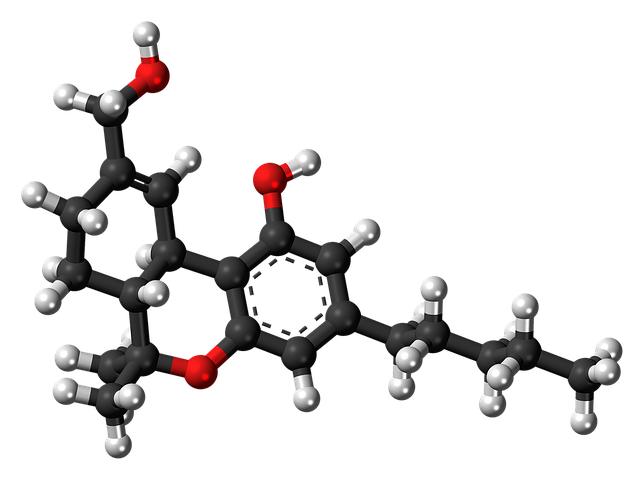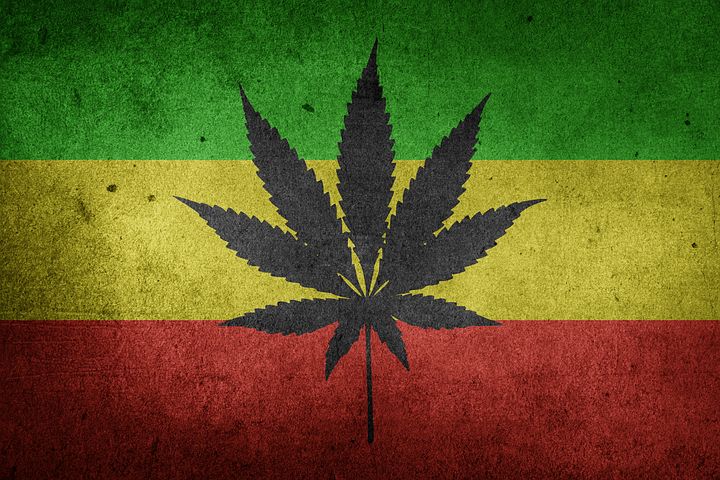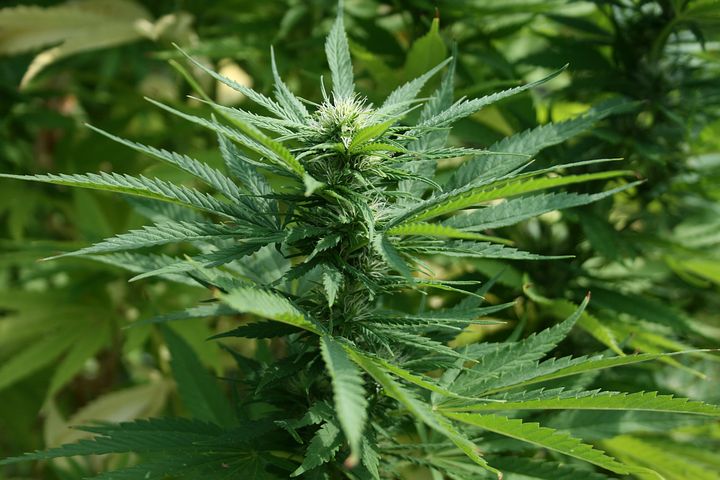Well, hello there! If you’ve purchased your medical marijuana card online and started smoking, eating or drinking marijuana, creating a desire to unravel its complexity, or you’re considering buying a medical marijuana card but you want to be well informed before you dive in (this is definitely something we recommend), you’re in the right place.
Regardless of what brought you here, you’re here, and you’re hungry (I’m sure it’s not marijuana-induced!) for information. Let us satiate you with talk of THC and THCA. If you can wrap your head around these two little acronyms, you will have a strong grasp on the most significant chemical compounds within marijuana and their physiological effects. Alright, let’s get right to the nitty-gritty science!
Tell Me About THCA

Understanding the science behind THC and THCA will help explain why medical marijuana can be good for you.
THCA – Tetrahydrocannabinolic acid (say that 5 times fast!) – is a biosynthetic precursor of tetrahydrocannabinol (THC). So THCA precedes and is related to THC. THCA is found in fresh, undried marijuana.
THCA doesn’t have any psychoactive (mind-affecting) effects – this is why people don’t just eat the leaves (though maybe the pungent taste of raw weed has something to do with it too). However, It does have anti-inflammatory, neuroprotective (preservation of neuronal integrity, so you stay sharp), antiemetic (anti-vomiting) properties. And it staves off prostate cancer too. All of this means THCA could be of great use to those seeking treatment of inflammatory conditions such as arthritis and lupus, or neurodegenerative diseases like Alzheimer’s or Parkinson’s disease.
Tell Me About THC
THC is the primary psychoactive cannabinoid of cannabis. Cannabidiol is another major component of the plant. There are at least 113 (I can’t even count that high) different cannabinoids isolated from cannabis, exhibiting varied effects. A cannabinoid is a class of chemical compounds that acts on cannabinoid receptors (involved in a variety of physiological processes including appetite, pain-sensation, mood, and memory) in cells that alter neurotransmitter release in the brain. Therefore THC affects physiological processes.

Many people consume medical marijuana without knowing exactly why it helps to ease their ailments.
THCA is present in fresh marijuana but is progressively decarboxylated (to be discussed later) into THC with drying. Under intense heating (smoking or cooking), this process is accelerated.
Decarboxylation is a chemical reaction that removes a carboxyl group from TCHA and gives us THC. Simply put, it’s the acid in TCHA that is removed during drying/heating. A simple way to remember this is to look at what letter is missing from the acronym THC that is present in the acronym THCA: that’s right, it’s the ‘A’, which stands for ‘acid’.
Without the carboxyl group, THC is able to freely bind to cell receptors in the body. Yay!
If smoked, the effects last around two hours, and get going 10-30 minutes after ingestion. Note: psychomotor impairment may continue after the perceived high has stopped, however.
Contrary to the mainstream narrative, marijuana – or THC, to be specific – has been proven to have lots of positive effects on brain cells. THC is a powerful neuroprotectant – we’ve discussed neuroprotectants already, so if you’re confused, it’s possible you require a neuroprotectant. Still confused? Just get a medical marijuana card online and get high and it’ll all become crystal clear!
Researchers at the University of Saskatchewan discovered that THC can promote the growth of new brain cells through a process known as neurogenesis (sounds made up, but we promise it isn’t).

There’s a lot of science behind this little plant!
While marijuana is presently illegal in many U.S. states and in many countries, synthetic versions of the chemical have been legally prescribed the world overfor a smorgasbord of ailments and diseases. The first THC-based pharmaceutical, Marinol, was interestingly funded by the National Cancer Institute. In 1985, Marinol received FDA approval as a treatment for chemotherapy-related nausea and vomiting. Since then, numerous other THC -based pharmaceuticals have also been developed. This goes to show you that, despite the prevalent controversy – and illegality of use in many cases – surrounding marijuana use, THC, its main cannabinoid, has proven efficacy in combating many psychological diseases and illnesses.
That’s it folks! You’re now all marijuana scientists in your own right. You can enter into any related debate with some serious knowledge bombs and destroy all opposition. We also hope it informs your usage. Don’t forget, you need a medical marijuana card/cannabis card/420 card/any one-of-its hundreds-of-other-names card in order to start enjoying the many positive health benefits associated with the herb.
